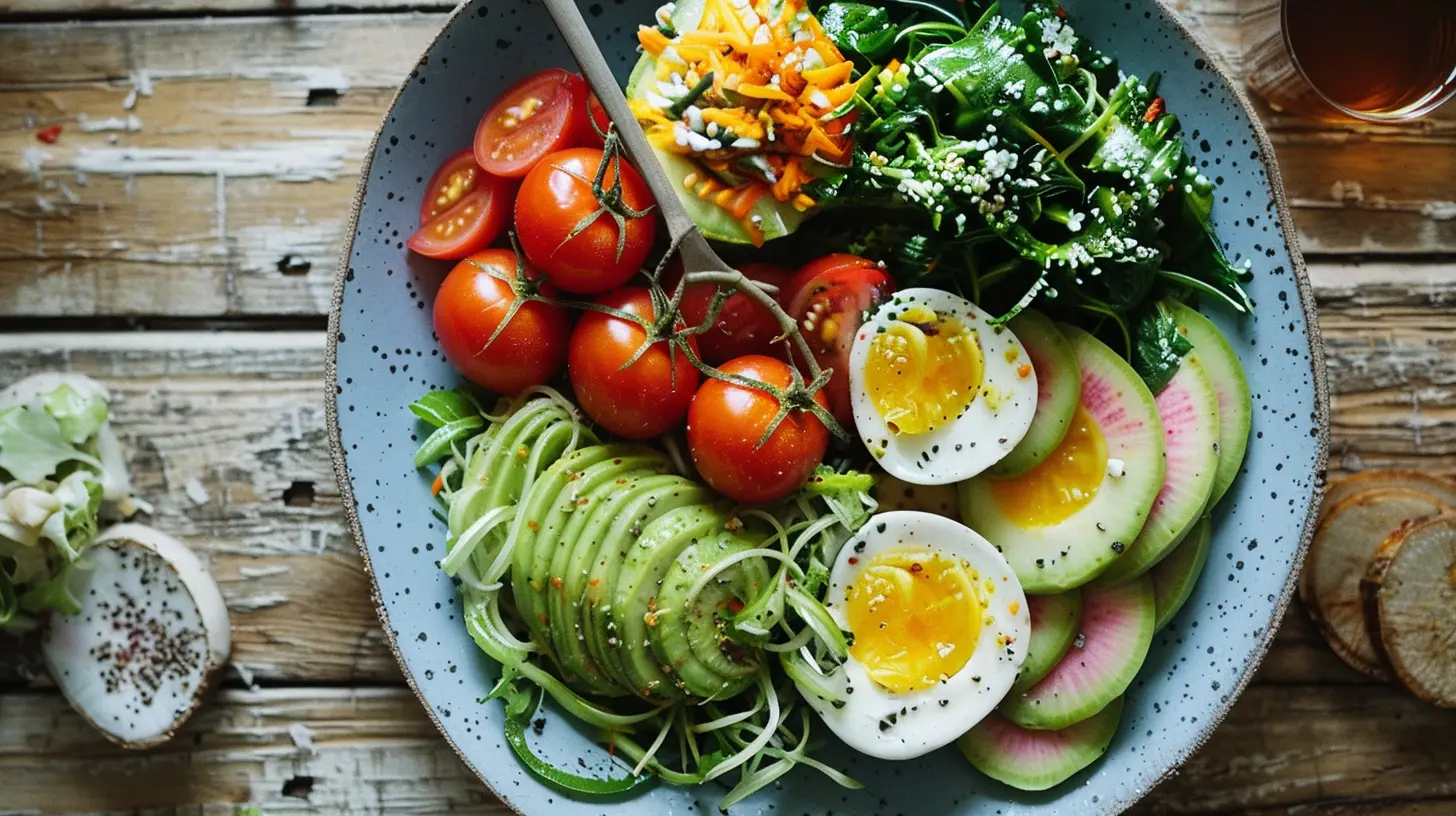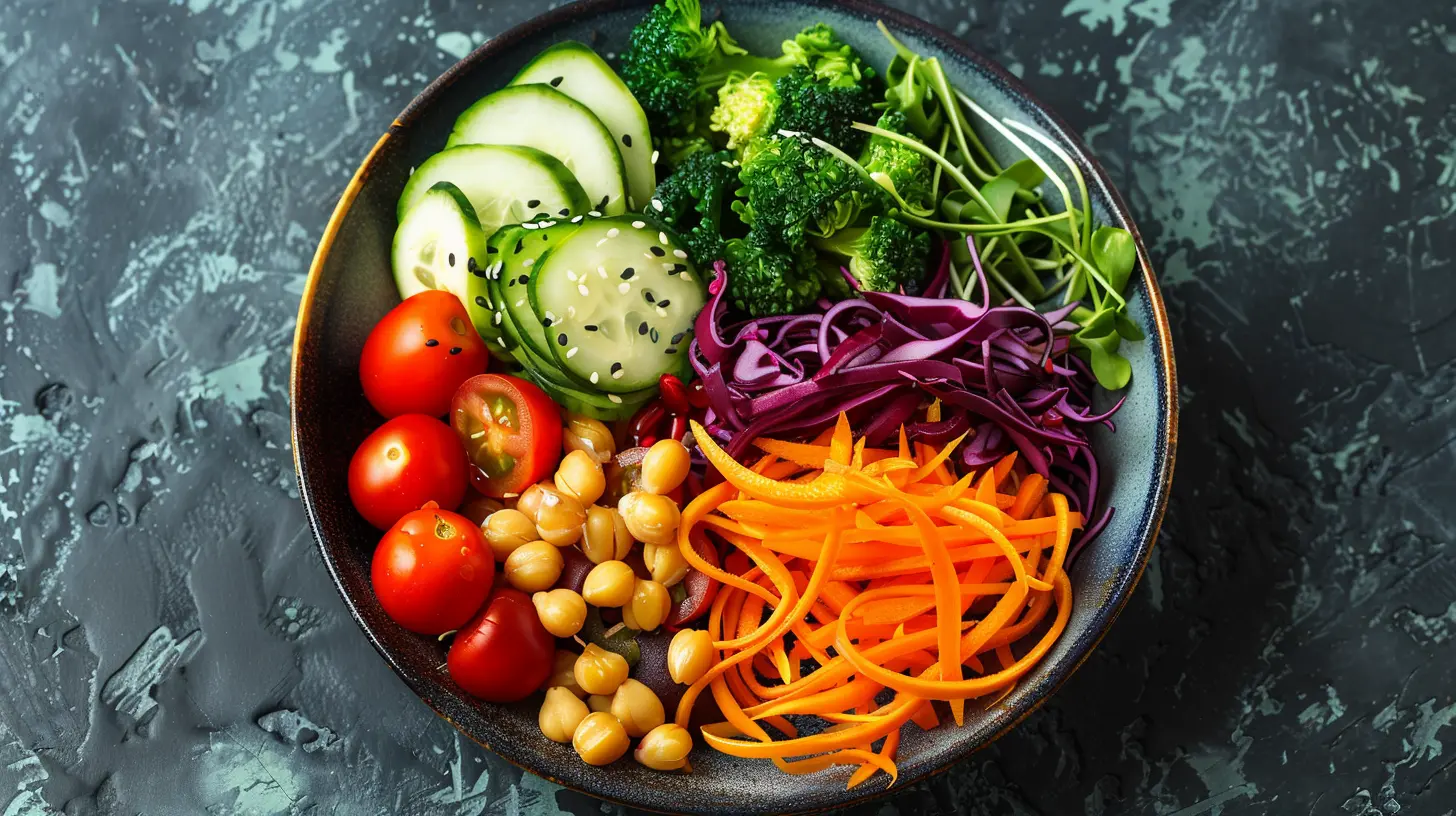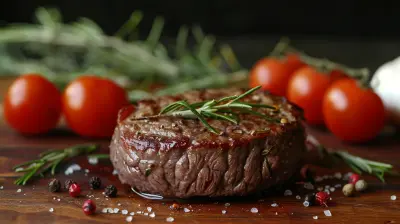23 April 2025
Ah, yes. Another health trend. "Mindful eating"—because apparently, simply eating our food like regular humans isn't enough anymore. We now need to think about it, too.
But hear me out. What if this whole "mindful eating" thing actually makes sense? What if, instead of inhaling lunch while doom-scrolling, we actually paid attention to our food? Shocking, I know.
Before you roll your eyes and go back to cramming an energy bar into your face at red lights, let’s talk about how mindful eating can give you actual energy—not just that jittery “I drank too much coffee” kind.

What Is Mindful Eating? (And Why Should You Care?)
Mindful eating is, simply put, paying attention to what you eat and how you eat it. That’s it. No magic. No expensive diet plans. Just being present with your food.Think of it as the opposite of scarfing down a meal while binge-watching Netflix. Instead, you tune in to your hunger cues, chew your food like a normal person, and stop eating before you feel like a stuffed turkey. Revolutionary, right?
And the biggest perk? Sustained energy. Not the kind that comes from six shots of espresso and disappears 30 minutes later. The kind that actually lasts.

Why Your Energy Levels Are a Mess
Let’s be honest—most of us treat our bodies like human garbage disposals. Fast food, ultra-processed snacks, endless caffeine… and then we wonder why we crash by noon.Here’s the deal:
- Mindless eating = energy rollercoaster. One minute, you’re thriving. The next, you’re face-down on your keyboard.
- Blood sugar spikes = disaster. Ever eat a sugary breakfast and feel like a superhero… for 20 minutes? Yeah, that’s your blood sugar messing with you.
- Stress eating = bad choices. When your boss sends that "We need to talk" email, suddenly that entire bag of chips seems like a great idea. (Spoiler: It’s not.)
The solution? Eating on purpose.

How to Eat Mindfully (Without Feeling Like a Monk)
Alright, I know what you’re thinking: “Great, another wellness thing I’ll never actually do.” But I promise, this isn’t about sitting in silence and contemplating your quinoa.Here’s how to make mindful eating actually doable:
1. Chew Like a Functional Adult
Your stomach doesn’t have teeth, so how about helping it out? Chewing properly lets your body actually digest food instead of turning your gut into a war zone.Try this: Instead of inhaling your food like a vacuum cleaner, chew each bite at least 20 times. Yes, that sounds ridiculous, but it'll slow you down and help your body absorb nutrients.
2. Ditch the Screens (Yes, Even Your Beloved Phone)
How many meals have you eaten while staring at your phone, barely remembering what you just consumed? Exactly.Try eating without any screens for once. Just you, your food, and maybe some human interaction if you’re feeling adventurous.
3. Eat When You’re Actually Hungry (Not Just Bored or Stressed)
Revolutionary concept: Eating because you need energy, not because you’re avoiding an awkward conversation or because TikTok told you to try that trendy new snack.Ask yourself, “Am I actually hungry, or just procrastinating?” If it’s the latter, maybe drink some water or take a walk instead.
4. Listen to Your Body (It’s Not That Complicated, I Swear)
Your body literally tells you when it’s hungry and when it’s full. The problem? We ignore it—constantly.- Stomach growling? Probably time to eat.
- Feeling sluggish? Maybe something nutritious instead of another iced coffee.
- Full but still eating just because? Put the fork down.
5. Stop Eating Like It’s a Competitive Sport
News flash: You’re not in an eating contest. There’s no prize for finishing your meal in record time (unless the prize is bloating).Take your time. Enjoy the flavors. Pretend you’re one of those fancy food critics tasting each bite. Who knows? You might actually enjoy your meal.

The Energy Benefits of Mindful Eating
Now, let’s talk about the reason you’re actually here—energy.1. No More Food Comas
Ever eat a massive meal and immediately need a nap? That’s because you stuffed your body with too much food too fast. Mindful eating helps avoid that "Why did I do this to myself?" feeling.2. Steady Blood Sugar = Steady Energy
Mindless eating is like throwing gasoline on a fire—quick energy, then crash. Mindful eating keeps everything balanced so you don’t feel like a walking zombie by 2 PM.3. Better Digestion = Less Energy Spent on Damage Control
When you chew properly and eat the right foods (instead of junk that belongs in a science experiment), your body can actually use its energy for you, not just for recovering from your terrible food choices.4. No More Mood Swings That Make People Avoid You
Hangry? Irritable? Mindful eating helps prevent those dramatic mood swings that have your coworkers slowly backing away from you. More stable energy = better mood.5. Less Overeating = No More Feeling Like a Bloated Balloon
When you actually listen to your hunger cues, you stop eating before you hate yourself. Mindful eating helps prevent that “I need to unbutton my jeans” moment.Practical Tips to Start (Without Losing Your Mind)
Okay, maybe you’re convinced that mindful eating isn’t total nonsense. But how do you make it happen?Try these baby steps:
✅ Start small. Try mindful eating for just one meal a day. No need to be perfect.
✅ Put your fork down between bites. Seriously. Just pause.
✅ Take a few deep breaths before eating. It sounds silly, but it helps your body get ready for digestion.
✅ Use smaller plates. It tricks your brain into thinking you have more food. Sneaky but effective.
✅ Slow down. No one’s going to steal your plate.
The Bottom Line
Look, I get it—mindful eating sounds a little extra, like something only yoga instructors with six-pack abs do.But if you’re tired of feeling drained all the time and living off caffeine and sugar, maybe—just maybe—it’s worth trying.
It’s not about being perfect. It’s about making small changes that give you more energy, better digestion, and fewer regrets after meals.
So, go ahead and actually enjoy your next meal. Your energy levels will thank you.




Vera McDonough
This article on mindful eating resonates deeply with me. It highlights the importance of being present during meals, which can transform our relationship with food. Embracing this practice has truly enhanced my energy levels and overall well-being. Thank you!
April 23, 2025 at 4:17 PM